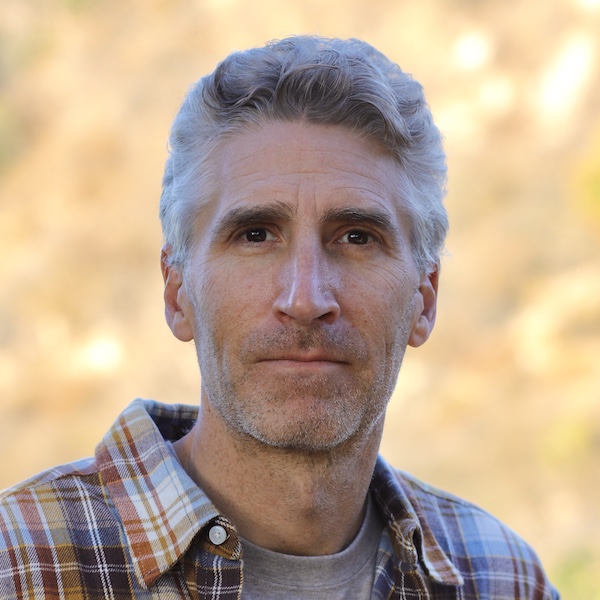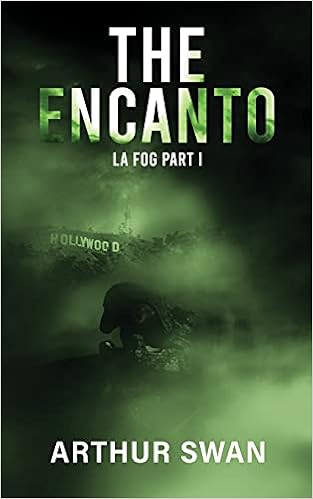 Where did you grow up /live now?
Where did you grow up /live now?
I grew up in Wilson, a small tobacco town in eastern North Carolina. I now reside in Los Angeles.
As a child, what did you want to be when you grew up?
As a very young child, I had plethora of career ambitions ranging from garbage man (the guy who rides on the back of the truck, not the one who has to drive it) to veterinarian. I also recall wanting to be a biologist for a few years and a musician.
What first inspired you to write?
In fifth grade, “volunteers” were selected to read our writing assignments aloud to the class. I was deathly terrified. I nearly passed out the first time I stood up there in front of the whole class, everyone staring at me as I tried to discern the slop I passed off as handwriting. After I stuttering through the first paragraph, a miracle happened—the kids laughed at my joke. And hearing their laughter, the ones who weren’t paying attention suddenly perked up. It was a transformative experience. Now the whole class was suddenly ready to hear what came next. They wanted to be entertained. They yearned for it. And I wanted to give it to them. After that, the writing assignments became my highest priority pieces of homework. I learned to type them up, so I could read them more easily, which I’m sure my teacher appreciated, as well.
 Where/When do you best like to write?
Where/When do you best like to write?
I like to write at 5:30 in the morning before doing anything else. As the sun comes up and the days starts, I like to be writing. Then no matter how crazy things get later on, at least I know I got some writing done.
What do you think makes a good story?
A character who readers identify with, who must undergo a transformation.
What inspired your story?
All the people in LA lead socially isolated lives because they are so focused on their careers, and, often, moved to LA from somewhere else, with no family or friends or local support network. I started thinking how some isolated person’s life could go totally off the rails with no one else even knowing. Even things that get reported on often get boiled down of a catchy headline. Often, so much is left out that people come to the wrong conclusion. And more often the truth is even more unbelievable than what you hear.
Also I wanted to write about the difference between people who can believe in something without knowing it’s true and those who can’t.
How does a new story idea come to you? Is it an event that sparks the plot or a character speaking to you?
Character. I do like the idea of starting from an event, but without a character who is changed by the event you don’t have a story.
Is there a message/theme in your novel that you want readers to grasp?
I want readers to think about the choices they’re making, if they’re really getting where they want to go. And to think about all the misunderstandings that occur when people communicate, all the misperceptions and incorrect assumptions.
What was your greatest challenge in writing this book?
Getting it done. I thought it would be fun to write a horror suspense novel where I could play with spooky images. Something quick and easy. But now here I am after six years, finally launching the first instalment of a quartet.
On a Friday night, what are you most likely to be doing?
Friday night represents a transition from my day job to a relaxing weekend of writing peppered with outdoor activities. I like to start it off with a good meal, maybe a burrito from Aroma Coffee and Tea. Then, either read or watch a show. I love Black Mirror, but sometimes it’s just too dark and too close to reality. Right now, I’m excited about the new season of Ted Lasso.
Who are some of your favorite authors?
James Lee Burke, Michael Connelly, Andre Dubus III, Stephen King, Donna Tartt, John Kennedy Toole, Kurt Vonnegut.
What’s the best writing advice you have ever received?
“We have to remember that the greatest triumphs and the greatest tragedies of the human race are nothing to do with people being basically good or people being basically evil. They’re all to do with people being basically people.” – Neil Gaiman.
What is the one book no writer should be without?
Writing the Block Buster Novel by Albert Zuckerman. Currently, my favorite book on writing.
Is there a character you identify with more than any of the others?
I identify with every one of them. When writing, I imagine I am that character. What it would be like if, for example, I weighed three hundred pounds? I do know what it’s like to want to eat even when I know it’s bad for me or I’m not hungry. When possible, I read something by someone with that experience, or talk to them. I have a friend who’s overweight and I’ve seen the effect on his self-image.
Ashley is probably the character I have the least in common with but I understand her feeling of social isolation caused by ambition and living in LA. I’ve seen how isolated some people have become by their own wealth. I understand how living with another person’s family seeds this longing she had for one of her own.
When will LA FOG part 2 be released?
Wayob’s Revenge is currently in the editing phase. Expect it in April or May, 2022.